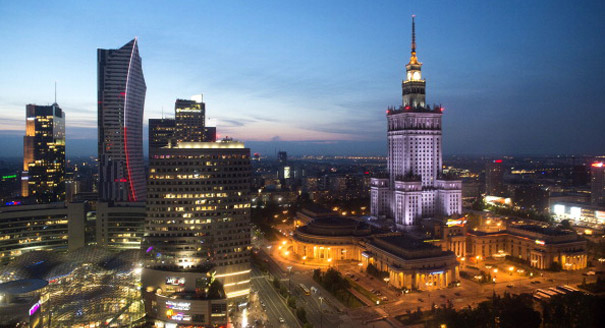As the world grapples with the result of the 2016 U.S. presidential election, Poland is heavily exposed. The risks of a potential decline in U.S. global leadership could threaten the strength of the Euro-Atlantic axis in general. Warsaw’s greatest particular cause for concern is the new administration’s policy toward Russia and NATO.
Coupled with a looming British exit from the EU and the crises engulfing Europe, the change in U.S. leadership requires a foreign and security policy overhaul in Poland. That shift should aim at strengthening security and political ties with other EU countries and supporting EU resilience. For that to happen, Poland needs an internal political consensus on achieving these goals.
No one can accurately predict what the foreign policy of U.S. President-elect Donald Trump will be. Speculation has included dark scenarios of a bromance with Russian President Vladimir Putin, horse-trading of spheres of influence, a new Yalta-style settlement for reorganizing the EU’s neighborhood, and looser ties with NATO.
An alternative outcome could be U.S. foreign engagement in the Reaganist tradition, with a focus on deterrence, and confrontations between major powers that could result in more proxy wars and cyberbattles. Much depends on who will be appointed U.S. secretary of state and secretary of defense.
Whatever the shifts in U.S. foreign policy bring, the signs point to a new geopolitical era unfolding amid a crisis-ridden and polarized international environment. The Polish response should follow the rule “Hope for the best, prepare for the worst.” That would be a reasonable approach for a country that only twenty-seven years ago regained its sovereignty and freedom from the combined oppressions of an authoritarian party regime and foreign influence. In the twentieth century, Poland learned in the hardest way—through destruction from wars and a loss of sovereignty—what isolationism and major power bargaining mean.
How should Poland prepare for the worst? A major effort to strengthen the country’s defense capabilities is essential. The process of modernizing and enhancing Poland’s military and civilian security apparatus needs to accelerate.
Poland also needs a significant diplomatic effort to promote closer security and defense ties and coordination in the EU as well as with other European NATO members. Poland’s government should advocate a strengthened EU Common Security and Defense Policy and champion adequate financing by encouraging all NATO allies to spend minimum of 2 percent of GDP on defense. Poland is one of the few NATO countries that meet this commitment.
With the UK heading for Brexit, the importance of Poland’s position as an advocate of NATO primacy in EU defense could grow. This position will make Warsaw a valuable partner for the new U.S. administration. At the same time, Poland’s government should gravitate toward the EU’s center. Now is the moment for Poland to change recently tense rhetoric toward key European allies such as France and Germany by promoting a reset of relations, reinvigorating the Weimar Triangle between Warsaw, Paris, and Berlin, and joining as an equal the discussion on EU integration in security and defense.
Such a move could lead to a stronger Polish position in the Visegrád Four, which also includes the Czech Republic, Hungary, and Slovakia. It could also help sustain consensus on the EU sanctions imposed on Russia for its actions in Ukraine and drum up support for enforced protection of Europe’s Eastern flank. But to make these arguments convincingly, Poland needs to rejoin the EU mainstream.
While this response is a clear and pragmatic policy option, achieving it will be challenging. Implementation faces an increasing polarization of politics both within Poland and with other EU members. Since Europe’s refugee crisis began in 2014 and conflicts erupted around the Polish government’s moves to curtail the independence of the Polish Constitutional Court and take control of public media, Warsaw’s relations with several EU countries have deteriorated. Heated and divisive political wrangling makes a foreign policy shift all the more difficult. Unfortunately, hard lessons from Poland’s history show that internal disputes in troubled times have been fatal for the country’s fundamental interests.
Following the end of the Cold War, Poland’s politicians were able to forge a difficult but stable foreign policy consensus, which resulted in the country joining the EU and NATO. Today’s challenges could be an opportunity to form such a consensus again. Trump’s election could be an incentive for Poland’s government to realize that strategically, it needs stronger ties with its EU partners. The political class should rally behind such a change. Senior officials in the administration of U.S. President Barack Obama have been passing messages to Poland’s government not to rock the EU boat. They have rightly pointed out that such moves only embolden Russia’s divisive politics in the continent.
It is not just Warsaw that needs to weigh its interests strategically: other EU member states should do the same. To extend the EU boat analogy, when the vessel is leaky and Europe reaches stormy waters, if all member states keep paddling together they may survive. If the boat loses paddlers (who’ll probably sink on their own), it will never make it. Everyone loses. Today, this is essentially a case of political realism for EU capitals—protect what you have. For Poland, it is ruthless pragmatism: EU integration is a cornerstone of national security.
For the United States, even if the new administration’s policies lead to isolationism and move toward transactional relations—deal making—with Russia or China, Washington is arguably still best off with a united Europe as a partner. Whether the Trump administration will recognize this remains to be seen. But Poland cannot afford to wait. Given the possibility of a rapid loosening of transatlantic ties, Warsaw’s priority should be a robust and constructive diplomatic effort to solidify Poland’s EU bonds.
Marcin Bużański is the director of the Peace and Stabilization Strategies Program at the Casimir Pulaski Foundation in Warsaw and a principal at the IGD Group in New York.






